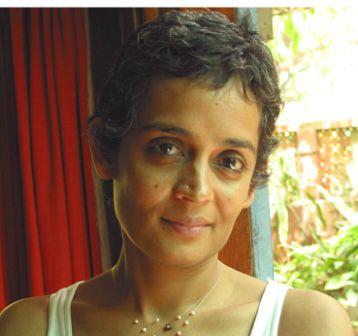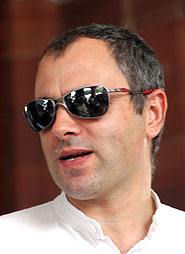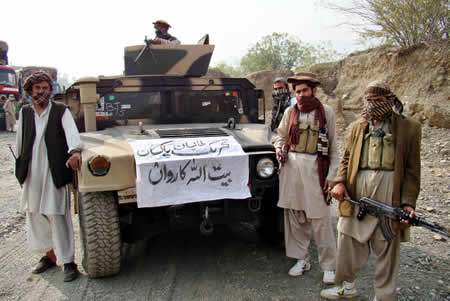Facebook Quotes And What They Mean
By: Subhadeep Bhattacharjee

By: Subhadeep Bhattacharjee
 with Jimmy Carter being the last to do so in 1978. His five day stay and tour around Agra, Jaipur, Hyderabad and Mumbai besides Delhi was flashing all over the newspapers and the just launched 24 hour news channels back then. No, we did not have any Twitter, Black Berry or Facebook in that era.
with Jimmy Carter being the last to do so in 1978. His five day stay and tour around Agra, Jaipur, Hyderabad and Mumbai besides Delhi was flashing all over the newspapers and the just launched 24 hour news channels back then. No, we did not have any Twitter, Black Berry or Facebook in that era.By: Subhadeep Bhattacharjee
 e expressed her support for the independence of Kashmir and on October 2010, at a seminar in Delhi named "Azadi – The only way", where Roy took part with Hurriyat Conference leader S.A.S.Geelani and Varavara Rao, Roy said that "Kashmir should get azadi from bhookhe-nange Hindustan". Article 19 of our constitution guarantees every citizen the ‘right to speech’ and time and again this has been both used and misused by the people of the country.
e expressed her support for the independence of Kashmir and on October 2010, at a seminar in Delhi named "Azadi – The only way", where Roy took part with Hurriyat Conference leader S.A.S.Geelani and Varavara Rao, Roy said that "Kashmir should get azadi from bhookhe-nange Hindustan". Article 19 of our constitution guarantees every citizen the ‘right to speech’ and time and again this has been both used and misused by the people of the country.By: Subhadeep Bhattacharjee
 ho wanted to play the vote bank politics by trying to appease the minorities our neta brigade behaved responsibly over the issue. There was wide spread speculations that the verdict would incite communal tension around the country like it had done post demolition of the Babri masjid in 1992.
ho wanted to play the vote bank politics by trying to appease the minorities our neta brigade behaved responsibly over the issue. There was wide spread speculations that the verdict would incite communal tension around the country like it had done post demolition of the Babri masjid in 1992.By: Subhadeep Bhattacharjee
 before the biggest sporting event India has ever hosted kicks off. The pseudo patriots will say Canada is showing typical ‘white men’s attitude’, bridge collapse is just an accident and Jersey? Never heard of a country by that name! But all these headlines do really tell a story.
before the biggest sporting event India has ever hosted kicks off. The pseudo patriots will say Canada is showing typical ‘white men’s attitude’, bridge collapse is just an accident and Jersey? Never heard of a country by that name! But all these headlines do really tell a story.By: Subhadeep Bhattacharjee
 ent for almost three decades now. Ever since the demolition of the Babri Masjid in December 1992, Ayodhya has been one of core issues in Indian politics which fuelled BJP’s rise to power and be seen as the best alternative to the Congress party.
ent for almost three decades now. Ever since the demolition of the Babri Masjid in December 1992, Ayodhya has been one of core issues in Indian politics which fuelled BJP’s rise to power and be seen as the best alternative to the Congress party.By: Subhadeep Bhattacharjee
 orces have the ‘right to kill’. On the other hand it will be unable to take on the hostile situation where every potential door and window in the valley is a terrorist hideout. There are calls to revoke it at the same time such powers are necessary as they give the military teeth to fight. What does the government do?
orces have the ‘right to kill’. On the other hand it will be unable to take on the hostile situation where every potential door and window in the valley is a terrorist hideout. There are calls to revoke it at the same time such powers are necessary as they give the military teeth to fight. What does the government do?By: Subhadeep Bhattacharjee
 ee community is busy in Gulf’s oil exploration) and also in Tripura which will go unnoticed due to its fate of being a North Eastern state. In the rest of the country the trade unionists won’t be able to stop their family members from going to work.
ee community is busy in Gulf’s oil exploration) and also in Tripura which will go unnoticed due to its fate of being a North Eastern state. In the rest of the country the trade unionists won’t be able to stop their family members from going to work.By: Subhadeep Bhattacharjee
 cutta barber is never free and so he was occupied with a client (that’s what they call a customer in B schools).
cutta barber is never free and so he was occupied with a client (that’s what they call a customer in B schools).By: Subhadeep Bhattacharjee
 led with corruption.” This after the world of cricket has been dragged to another major match fixing scandal, the biggest perhaps since the last which threatened the game in the year 2000.
led with corruption.” This after the world of cricket has been dragged to another major match fixing scandal, the biggest perhaps since the last which threatened the game in the year 2000.By: Subhadeep Bhattacharjee
 What surprises me is the fact that despite this most of us failed to notice Bengal’s decline compared to growth across the country. A majority patronised the idealism preached by the Marxists who have been in power for a shade too long than it should be in an ideal democracy. Others seemed to have turned a complete blind eye on Bengal’s road to insignificance in context of the nation and its growth engine. But how is it that such a thing was allowed to happen when people from the state have been seeing the growth of other places in the country?
What surprises me is the fact that despite this most of us failed to notice Bengal’s decline compared to growth across the country. A majority patronised the idealism preached by the Marxists who have been in power for a shade too long than it should be in an ideal democracy. Others seemed to have turned a complete blind eye on Bengal’s road to insignificance in context of the nation and its growth engine. But how is it that such a thing was allowed to happen when people from the state have been seeing the growth of other places in the country?By: Subhadeep Bhattacharjee
 r more than a century is in sorry state. Apart from the emotional attachment of its inhabitants (mainly Bengalis) it has had very little claim to fame in the post independent India.
r more than a century is in sorry state. Apart from the emotional attachment of its inhabitants (mainly Bengalis) it has had very little claim to fame in the post independent India.By: Pritam Bhattacharya
 tical communism’s comeback in other climes and times are an indicator, Bengal might be bidding farewell to Communism and comeback may be very very far away, for good for for worse.
tical communism’s comeback in other climes and times are an indicator, Bengal might be bidding farewell to Communism and comeback may be very very far away, for good for for worse. By: Subhadeep Bhattacharjee
 a makes it to the 63rd spot in the list of 65 cities around the world. Our neighbours on the west and east also have made it to the list with Karachi, the only Pakistani metropolis being ranked 60, and Bangladesh capital Dhaka grabbing the 64th spot.
a makes it to the 63rd spot in the list of 65 cities around the world. Our neighbours on the west and east also have made it to the list with Karachi, the only Pakistani metropolis being ranked 60, and Bangladesh capital Dhaka grabbing the 64th spot.By: Pritam Bhattacharya
 ), none of this class would leave anything substantial in their professional work that would outlive the next quarter, or next profit margin or the next project.
), none of this class would leave anything substantial in their professional work that would outlive the next quarter, or next profit margin or the next project.By: Subhadeep Bhattacharjee
 just finished unfurling the national flag and was in attention position as the National Anthem was being played. He now joins the elite club with former US President George Bush, Home Minister P Chidambaram, Pakistan President Asif Ali Zadari.
just finished unfurling the national flag and was in attention position as the National Anthem was being played. He now joins the elite club with former US President George Bush, Home Minister P Chidambaram, Pakistan President Asif Ali Zadari.By: Subhadeep Bhattacharjee

By: Subhadeep Bhattacharjee
 tion. How was it that a Home Minister could take such a decision without the Prime Minister despite being a Gandhi had no say in it? According to Singh's claim Rajiv's immediate concern was about the compensation that the victims would get. Had the Prime Minister forgotten about a more fundamental thing called justice? What explains Rajiv's non-action in the entire issue?
tion. How was it that a Home Minister could take such a decision without the Prime Minister despite being a Gandhi had no say in it? According to Singh's claim Rajiv's immediate concern was about the compensation that the victims would get. Had the Prime Minister forgotten about a more fundamental thing called justice? What explains Rajiv's non-action in the entire issue?By: Subhadeep Bhattacharjee
 ool Congress leader was speaking on the same lines as the Left wing rebels who alleged that Azad was killed in cold blood.
ool Congress leader was speaking on the same lines as the Left wing rebels who alleged that Azad was killed in cold blood.By: Subhadeep Bhattacharjee

By: Subhadeep Bhattacharjee

By: Subhadeep Bhattacharjee
 bad Taliban (which carries out attacks on the American and NATO troops in the Pak-Afghan border.)
bad Taliban (which carries out attacks on the American and NATO troops in the Pak-Afghan border.)By: Subhadeep Bhattacharjee
 ed which at times prevents people from taking a more practical decision. The Indo-Pak peace process is a major example to this theory.
ed which at times prevents people from taking a more practical decision. The Indo-Pak peace process is a major example to this theory.By: Subhadeep Bhattacharjee

By: Subhadeep Bhattacharjee
 he US pressure suddenly got a shot in the arm to make a mockery out of the talks. This left our foreign minister SM Krishna dejected who had gone to Islamabad with high hopes and huge promises.
he US pressure suddenly got a shot in the arm to make a mockery out of the talks. This left our foreign minister SM Krishna dejected who had gone to Islamabad with high hopes and huge promises.By: Subhadeep Bhattacharjee
 tting up of the enquiry commission by the railways whose report will lie in some corner of one of the zonal headquarter of the Indian Railways.
tting up of the enquiry commission by the railways whose report will lie in some corner of one of the zonal headquarter of the Indian Railways.By: Subhadeep Bhattacharjee
 d by Maoist violence, have been asked to set up a Unified Command. Its main aim will be to share intelligence and handle the Naxal problem as a single force. This Command will be headed by Chief Secretaries of the four states.
d by Maoist violence, have been asked to set up a Unified Command. Its main aim will be to share intelligence and handle the Naxal problem as a single force. This Command will be headed by Chief Secretaries of the four states.By: Subhadeep Bhattacharjee
 scenic valley about which the great Mughal emperor Shah Jahan had once said “Agar Firdous Bar Roi Zamanast Tho, Haminasto, Haminasto, Haminasto" (If there is ever a paradise on earth, it is here, it is here, it is here).
scenic valley about which the great Mughal emperor Shah Jahan had once said “Agar Firdous Bar Roi Zamanast Tho, Haminasto, Haminasto, Haminasto" (If there is ever a paradise on earth, it is here, it is here, it is here).By: Subhadeep Bhattacharjee
 he opposition parties. There has also been some hushed protest from some within the UPA ranks with Mamata Banerjee not attending the crucial cabinet meeting in which this decision was taken. She has clearly set her eyes on the assembly elections is West Bengal.
he opposition parties. There has also been some hushed protest from some within the UPA ranks with Mamata Banerjee not attending the crucial cabinet meeting in which this decision was taken. She has clearly set her eyes on the assembly elections is West Bengal.By: Subhadeep Bhattacharjee
 ments on the field were disastrous as they went down to Germany 1-4 making another early exit from the world cup. This is nothing new for the English fans as they are used to seeing this every four years. The English football comes with a rockstar image to every World Cup and the story remains the same.
ments on the field were disastrous as they went down to Germany 1-4 making another early exit from the world cup. This is nothing new for the English fans as they are used to seeing this every four years. The English football comes with a rockstar image to every World Cup and the story remains the same.By: Subhadeep Bhattacharjee
 the gallows in the last 15 years. This perhaps because the rape convict had no political backing. Even Rajiv Gandhi’s murderers have escaped death using President’s mercy.
the gallows in the last 15 years. This perhaps because the rape convict had no political backing. Even Rajiv Gandhi’s murderers have escaped death using President’s mercy.© Blogger templates The Professional Template by Ourblogtemplates.com 2008
Back to TOP